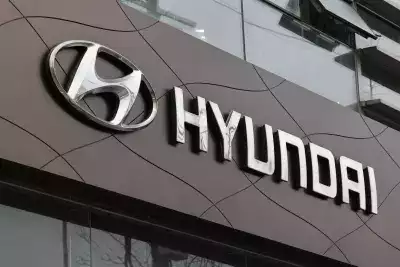
The SUV rollout will begin with its first India-made electric vehicle early next year and the launch of at least two gasoline-powered models tailored for the market starting in 2026, said three sources with knowledge of the company's plans.
The strategy of adding higher-margin offerings, pursued in tandem with Hyundai's first listing outside South Korea, indicates its bullish outlook on the world's third-largest car market as its China footprint shrinks and sales at home decline.
Hyundai's sales in India have lagged only Maruti Suzuki's, though a rapidly changing competitive landscape has seen domestic behemoths Tata Motors and Mahindra & Mahindra eat into its market share with new SUVs which, instead of once-favoured small cars, are the hottest selling vehicles.
This has lowered Hyundai's India market share to 14.6% from 17.5% four years ago, while Tata's share has nearly tripled to 14% over the same period. The next biggest foreign rival, Toyota has seen its share rise to 6% from 4%.
"Hyundai is in a tough spot," said V G Ramakrishnan, managing partner at consultancy Avanteum. "Its primary focus should be on how to retain market share and the only way to do that is with a faster product roll-out."
Hyundai did not respond to requests for comment on its India plans.
'VIBRANT MARKET'
India is the third-biggest revenue generator globally for Hyundai after the U.S. and South Korea, and it has already invested USD 5 billion in the country with commitments to pump in another USD 4 billion over the next decade.
"We take pride in consistently securing the second-largest market share in this vibrant market and will continue to elevate Hyundai as a premium brand," Hyundai Motor Group's Executive Chair Euisun Chung said during a visit to India in April.
The introduction of Hyundai's India-made electric SUV in 2025 will be followed by four more EVs through the end of the decade as it evaluates plans to make the country a regional EV export hub, said the three sources, who were not authorised to speak to media.
Hyundai will also launch hybrid cars in India amid a broader strategy to boost global sales by 30% by 2030, unveiled on Wednesday, contributing to its plan of selling higher-priced vehicles in the country to increase margins.
The share of its cars costing at least USD 18,000 - considered upmarket in India - doubled to 15% between 2021 and 2023, according to draft IPO papers filed in June.
Hyundai, which plans to sell up to 17.5% of its shares in the Indian business to the public, said it would continue this "premiumisation" strategy, which has helped it record some of the highest profit margins among peers in India but has come at the cost of volumes.
The automaker will need to maintain a fine balance between market share and margins after its listing, said Ramakrishnan.
"If there is a drop in either one, the company can be questioned by shareholders," he said.
Hyundai's shrinking market share has come despite hitting its highest-ever sales in India last fiscal year.
INTENSE COMPETITION
Hyundai entered India in 1996 and its early success in the country, which has been a graveyard for automakers like Ford and General Motors, was due to affordable hatchbacks like the Santro, which has since been discontinued.
As customer preferences shifted, Hyundai launched its first locally-made SUV in 2015. The mid-sized Creta, priced between USD 13,000 and USD 24,000, was an instant success and is Hyundai's biggest money spinner.
Hyundai now has eight SUVs in its portfolio of 13 cars but its share of India's total SUV sales of 2.5 million units last fiscal year fell to 19% from 24% three years ago, the IPO papers showed.
Of the two new gasoline-powered SUVs Hyundai is planning for India, the first will be based on its Bayon crossover currently sold in global markets, the three sources said, competing against Maruti's Fronx crossover and Tata's Nexon SUV.
The second will be bigger than Hyundai's Creta SUV and is expected to compete with Mahindra's XUV700.
The two SUVs are expected to add around 120,000 units a year to Hyundai's volumes, one of the sources said. The carmaker sold 615,000 cars in India, of which 63% were SUVs and the remainder hatchbacks and sedans, and exported 163,000 vehicles last fiscal year, industry data showed.
Hyundai's rivals, however, are not standing still.
Tata, India's top-selling EV maker with a market share of more than 75%, has said it plans to launch five EVs over the next three to four years, taking its total to 10.
Mahindra has said it will launch seven electric SUVs and six new gasoline-powered SUVs by the end of the decade. Market leader Maruti is doubling down on SUVs and hybrids, and plans to launch six EVs by 2031.
"What brought Hyundai so far will not necessarily take it into the future. Competition is more intense," said an Indian supplier to Hyundai.
Disclaimer: The copyright of this article belongs to the original author. Reposting this article is solely for the purpose of information dissemination and does not constitute any investment advice. If there is any infringement, please contact us immediately. We will make corrections or deletions as necessary. Thank you.





